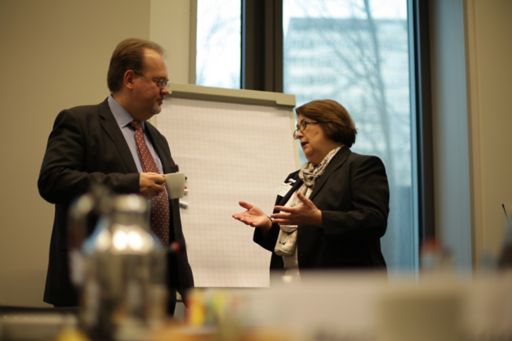Maintaining the relevance of audit and assurance: Stakeholder perspectives
Given that the audit looks at historical financial information, is it still relevant for today’s world? That was a recurring question in the discussions that KPMG held between investors, audit committees, regulators and other stakeholders.
On one level, the answer was that the audit certainly is still relevant. It remains a cornerstone of the capital markets, giving the independent scrutiny that investors rely on.
But on another level, there is a growing sense that it needs to do more. Stakeholders discussed what expectations should be placed on auditors to identify future risks. Should auditors be required to also offer assurance on wider elements than just the financial statements?
'Prospective' information
Some participants signalled that they would welcome a more forward-looking emphasis. Investors often want more ‘prospective’ information given that they are charged with investing client capital into what can be an uncertain future. They frequently want to know more about risk management structures and internal controls. As investors, they also need to be comfortable with estimates being made – and would welcome insight from auditors on that.
This is one of the areas that has to some extent been met through the new model of expanded audit reports which have been introduced in a growing number of countries, giving more detailed insights into the considerations and judgements of the auditor during their work.

A danger of 'new boilerplate'?
Several participants were positive about these new reports, believing that there was a strong indication, based on the experience in the UK, that they provide more information that will help investors have a better understanding of a company.
However, others warned that despite the good start, there was a danger that within the next few years the reports could become ‘new boilerplate’ – so the profession will have to work hard to keep them fresh and add more value over time.
Overall, though, the reports have been well-received - but does there remain more for auditors to do? Non-financial information is increasingly seen as an important part of corporate reporting, so should auditors be offering deeper assurance over that too?
Non-GAAP measures
Some stakeholders believed that, while there may be room for some limited assurance from auditors on non-financial and non-GAAP measures, overall there could be significant challenges in providing this additional assurance. Therefore, it may be that auditors’ focus should rest more on the systems and processes used to generate or collect that information (rather than the information itself)
There is a debate also on non-GAAP (supplemental) financial measures. Some investors observed that they had been seeing increasing gaps between the accounting numbers and the management numbers reported. Management numbers are not subject to the same audit and assurance as the accounting numbers and companies also sometimes change on a periodic basis the type of non-GAAP measures they provide – making year on year comparability difficult. They would welcome further challenge from auditors – or indeed audit committees – to company management over this.
An accurate notion of earnings quality
What investors ultimately want to get to is an accurate notion of earnings quality – so there is a need for an ongoing discussion to work out the right level of assurance, and over what information, to facilitate that.
However, for all the interest from some parties in auditors providing assurance over a wider spread of areas, there remain some – largely on the corporate side of the fence, and particularly in the Americas discussion in Toronto – who are skeptical and believe that auditors should retain their traditional financial statements focus.
Some argued that if auditors start to get into wider areas, it could ‘dilute’ the value of the system, which is based around the integrity of the financial statements. Others were concerned that a wider remit could detract from auditors’ focus on their core role.
Clearly, the debate about how to keep the role of auditors relevant is one that has further to run.
All references to 'KPMG', 'us' and 'we' refer to KPMG's network of member firms.
Connect with us
- Find office locations kpmg.findOfficeLocations
- kpmg.emailUs
- Social media @ KPMG kpmg.socialMedia

